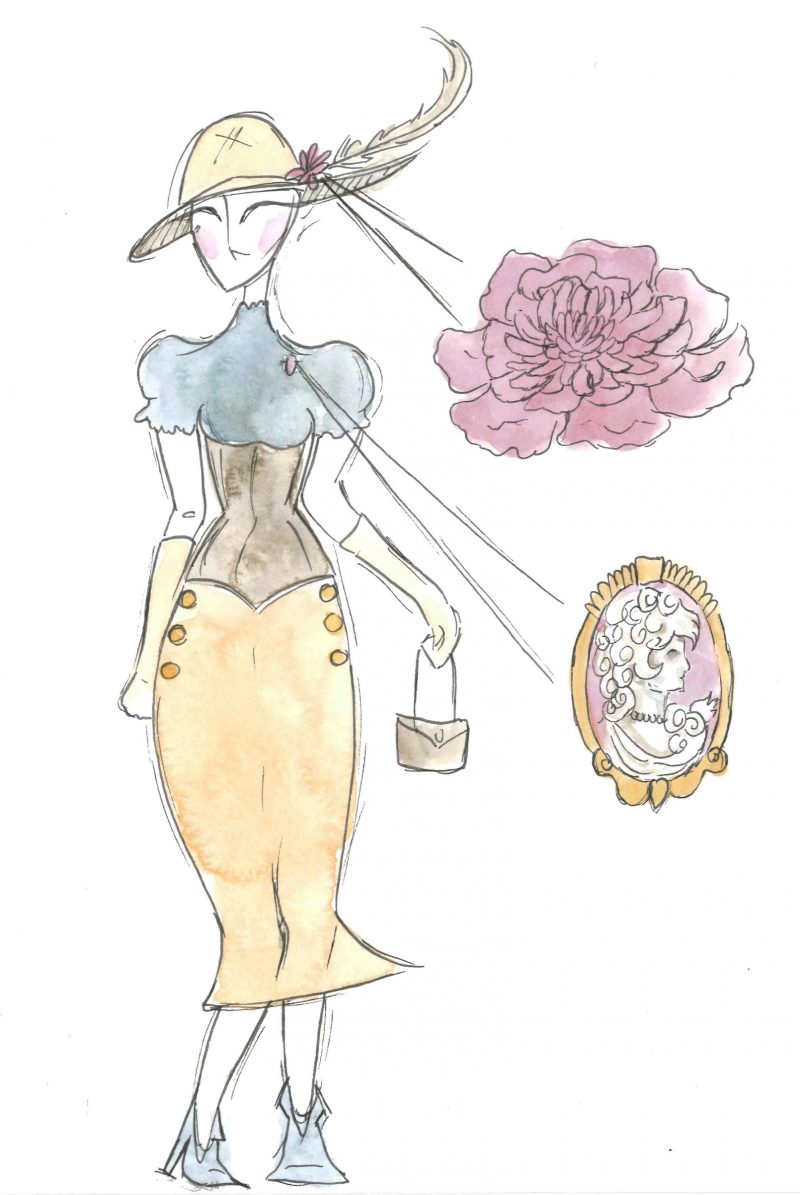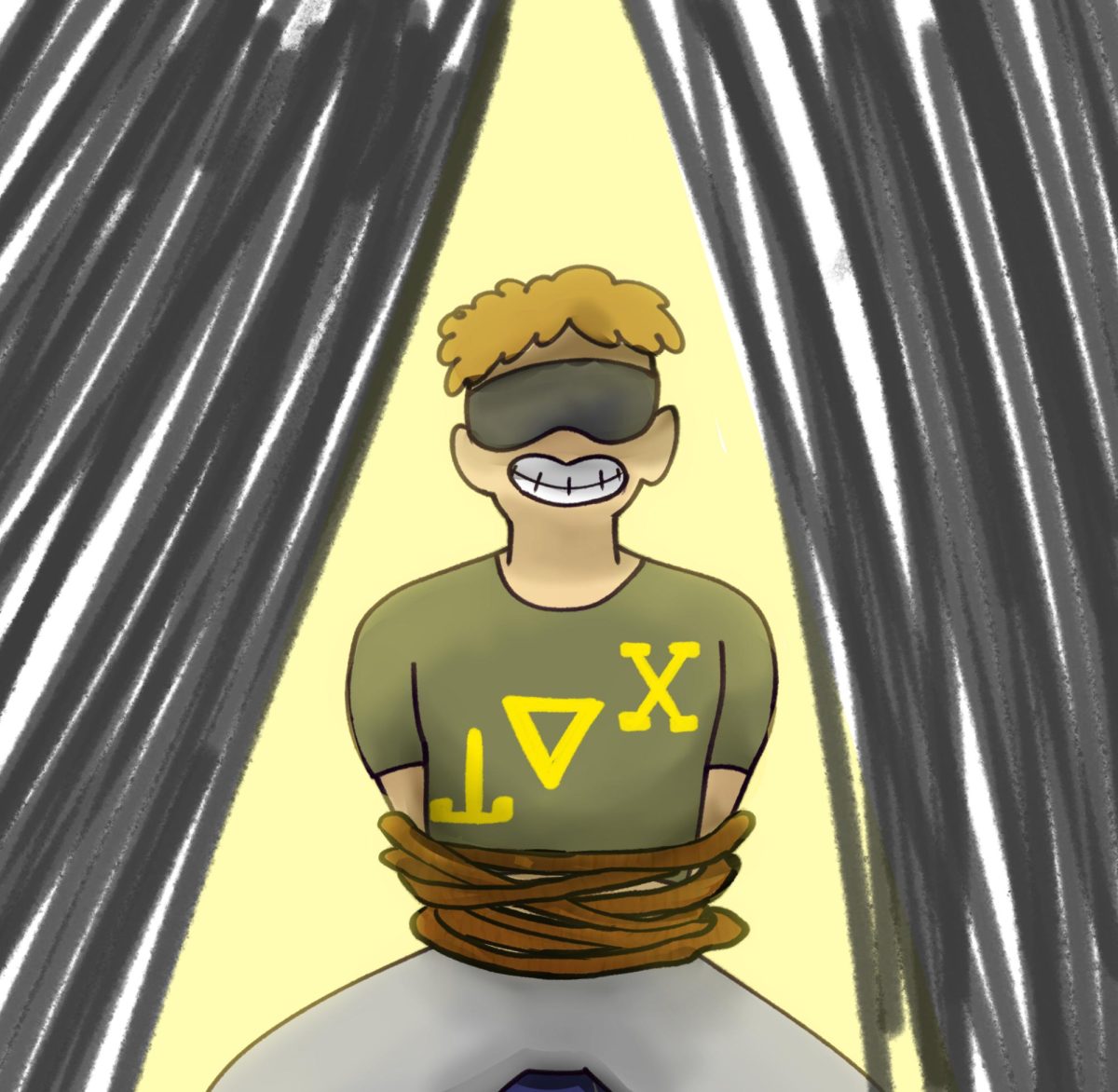Even though it was 8:30 a.m., Kate excitedly sipped her morning tea, ready to continue working on her apron. She’d been thinking about the pattern all night: The ruffles she’d add, the last minute alterations she wanted to make, the new theme she finally settled on — Star Wars. Kate slouched over her table in Ruth Taylor Theater wildly threading, chaotically cutting her fabric and frantically calling for her professor — Jodi Karjala — to help.
Kate Jones-Waddell, senior theater major, took Costume Construction two years ago and left the class with an “out of this world” Star Wars-themed apron for her dad, along with a pants pattern. Jones-Waddell had some previous sewing and clothes construction experience, but she improved in her skills through Costume Construction.
“I made this fun apron for my dad — this frilly Star Wars apron — so that was really fun and cute. I’ve always loved art and sewing. I took sewing classes when I was really young at some community thing, so it was a lot of self-taught things,” Jones-Waddell said. “I think by taking her class, I have learned a lot about that professional aspect.”
Karjala, Costume Construction professor and costume designer, described the goals of the class.
“Through learning both the art and skill of costume construction, students not only learn sewing, but also learn how to design a garment, project planning and creative problem-solving. Students explore artistic creativity through the medium of fabric. In some respects, you can think of making clothing as a form of sculpture: you take a 2-D object — fabric — and manipulate into a 3-D form — clothing — that will fit the human body,” Karjala wrote in an email interview.
The class isn’t the only way to get involved in fashion in the theater. Alexis Jarrett, peer tutor for Costume Construction and costume studio employee, helps create costumes for Trinity productions with Karjala.
“For the shows, there are production meetings where all of the different designers meet with the director, and so that’s how the process starts. Usually, Jodi will do the costume design, and she will sometimes have a student assistant. Basically, they work with the director on the designs, the actors come in and get measured and we make the clothes based on her designs,” Jarrett said.
The student-run aspect of the costume shop and the theatre department as a whole allowed Jarrett to branch out and learn new skills when she got to Trinity.
“I think the whole theater department is just really great in the way that it gives everyone hands-on experience because when I came to Trinity, I didn’t know how to sew. I actually learned from working in the shop before I took the class,” Jarrett said. “It’s a really great skill to have.”
Holly Gabelmann, senior theatre major, took costume design her sophomore year. Gabelmann thinks that the class helps students become more sustainable in their daily life by learning to repair and reuse your clothes in addition to giving students a sense of appreciation — especially for theatre.
“I think it’s important that everyone appreciates the work that goes into theatre because when you walk into a theater space, and you see the actors and you see the set in your mind, kind of unconsciously, it’s always been there,” Gabelmann said. “But to take Costume Construction and to appreciate the hours and hours that go into just the garments alone — not even the rehearsals, not even the scene building not even the design, just the sewing — I think it’s really important to appreciate that.”








